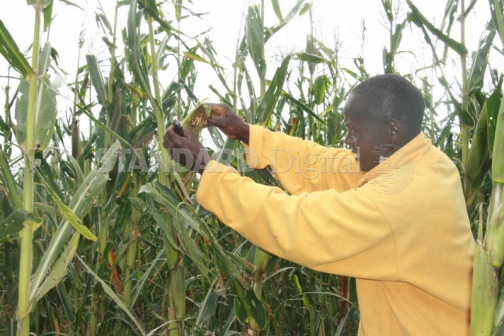×
The Standard e-Paper
Kenya’s Boldest Voice

The Cereal Growers Association has warned of a possible serious maize shortage in the coming months due to the army worm invasion.
The association has noted the pest is a major threat to maize production, terming it “worse than the Maize Lethal Necrosis Disease”.